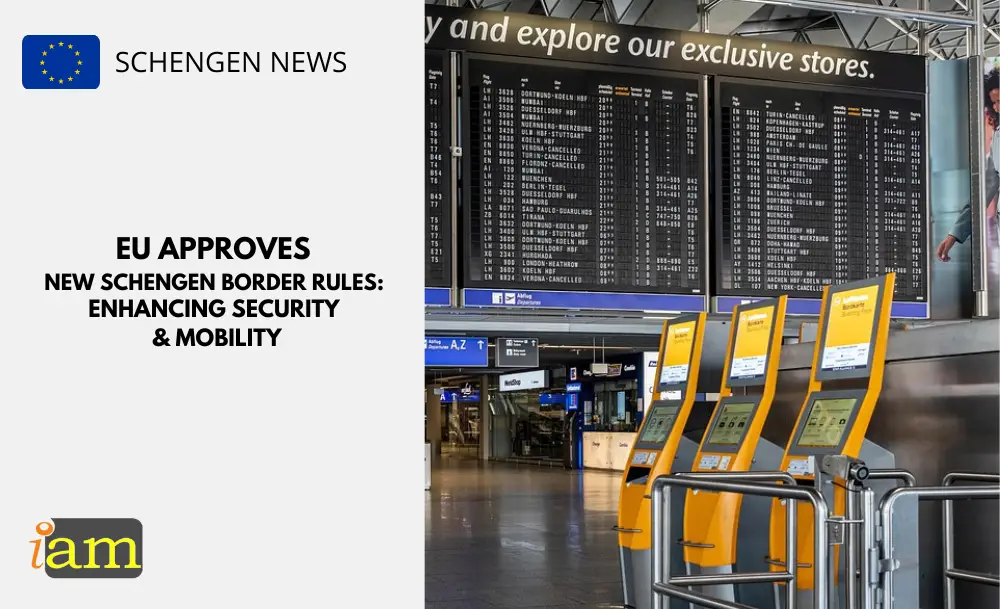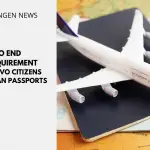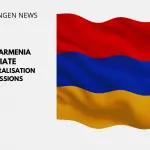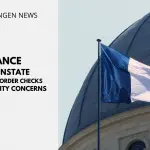EU Approves New Schengen Border Rules: Enhancing Security and Mobility

The Council of the European Union has officially endorsed a significant update to the Schengen Borders Code, a crucial framework governing the management of internal and external EU borders.
This move aims to bolster the resilience of the Schengen Area in handling crises at external borders while ensuring that EU residents continue to enjoy seamless travel within the borderless zone.
The revamped regulation will also offer the possibility to adopt EU-wide measures to restrict the entry of third-country nationals when there are health emergencies. This addition is a proactive step to safeguard public health while maintaining the integrity of the Schengen Area.
At the same time, the updated code provides clear procedures for EU member states to manage the movement of migrants more effectively, particularly in cases of instrumentalised migration, where migration is used as a political tool.
These measures aim to prevent irregular secondary movements of migrants from one member state to another, ensuring a more coordinated and secure approach to migration management.
Welcoming the adoption of the new Schengen Borders Code, the Belgian Minister of the Interior, Institutional Reform and Democratic Renewal, Annelies Verlinden, said that with this decision, the EU will be able to maintain borderless travel while at the same time securing its external borders.
Flexibility in Border Crossing Points and Internal Controls
The updated Schengen Borders Code grants member states the flexibility to adjust border crossing points, either by limiting their number or modifying their opening hours, to enhance border surveillance. This adaptability is crucial for responding to specific security needs and traffic flows.
In terms of internal border controls, the regulation clarifies the rules for their introduction and extension. Member states can maintain internal border controls for up to two years, with an option to extend for an additional 18 months in exceptional circumstances.
This provision ensures that internal borders can be managed efficiently during prolonged crises without compromising the fundamental principles of the Schengen Area.
To minimise the need for internal border controls, the new code encourages alternative measures like enhanced police checks and cross-border cooperation. These measures aim to maintain security without reinstating full border controls, thereby preserving the free movement of people within the EU.
For third-country nationals caught illegally residing in a member state, the regulation introduces a streamlined transfer procedure. This new process ensures that such individuals are handled efficiently, reinforcing the EU's commitment to maintaining lawful and orderly migration practices.
This regulation enters into force on the 20th day following its publication in the Official Journal of the European Union. It is directly applicable in the EU countries
The newly approved Schengen Borders Code represents a significant step forward in the EU's efforts to balance security and mobility.
Do you need to renew your passport? Talk to us in the comment section below. Or if you need more advice on the above, contact us for further travel & immigration advice.
Check out the deals we have found below and tell us your travel plans.
Check out the offers and discounts from:
And because of the pandemic, don’t forget to get your travel insurance, which will cover you for flight disruptions and pandemic related matters.
IaM can help with your visa application to Europe, the United States, the UK & other countries
If you need help with a US visa, a UK Visa, or a visa to Europe, including help with appointment booking obligations, IaM can help. For more information and advice on US immigration, UK immigration law and US visa applications or if you need any help or assistance please, reach out to your Visa Coordinator at IaM.
Some of our posts include affiliate links. If you choose to purchase any of these products, we might get a small commission. For more information, check out our TOS.
- UK May Tighten Visa Rules for Some Nationalities - 7 May 2025
- Romania Off US Visa-Free List - 6 May 2025
- UK Fiancé Visa Made Simple: Requirements, Process & Tips - 5 May 2025









